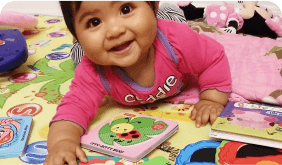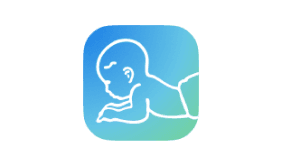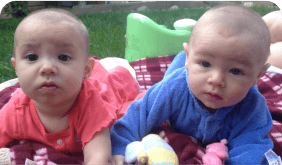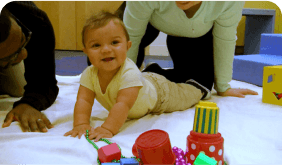Babies are born with a sense of numbers, and they continue to develop early math skills through everyday play and exploration.
Skills like recognizing different colors, comparing sizes, and grouping objects are part of early math development.
Help support Baby’s early math skills with activities like counting out loud, playing with shapes, and finding patterns in nature.
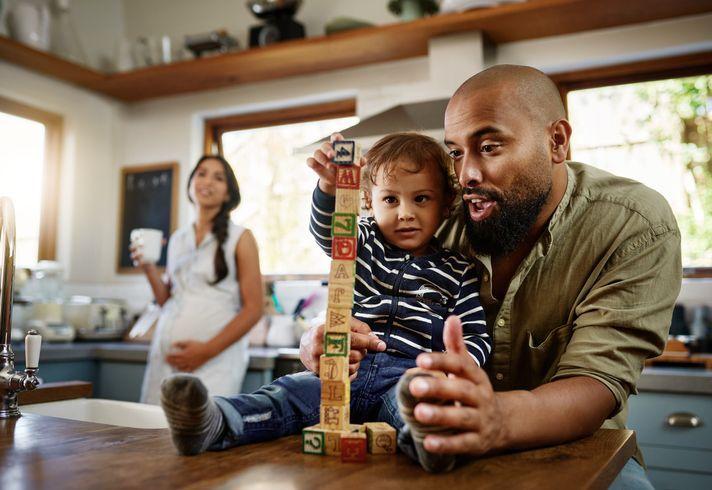
When you hear the word “math” you may picture multiplication tables, fractions, or that time you learned what the Pythagorean theorem was in math class. A lot of things may come to mind, but you probably don’t think about a newborn baby’s math skills!
While Baby may not be able to count to ten or solve for X just yet, studies show newborn babies are born with a sense of numbers. And as young as 6 months, Baby’s understanding of numbers can be connected to how their math skills will develop as a toddler.
What are early math skills?
Believe it or not, babies and toddlers actually use math every day …but it’s not the kind you’d find on a 5th grader’s math homework. Instead, these tots use math skills for things like problem solving and making choices. Some call these skills “early math,” and they include counting (eventually), making comparisons in quantity, identifying shapes and patterns, and grouping objects.
Early Math Skills You May See Baby Use!
Have you noticed your baby using math skills? It’s much more common than you might think! For example, in their first year, Baby may:
Pick up on features for sorting and comparing. Baby may notice shape, size, color, and quantity—even if they can’t say those words yet.
Begin to notice patterns. Like realizing running water means it’s bath time, or recognizing repeated colors on a toy or book.
Understand cause and effect. Push button = toy makes funny sound. Shake rattle = hear noise. These are your little Einstein’s first experiments!
Begin to think of objects in groups. Like toys that roll vs. toys that don’t (or toys they can pick up to put in their mouths vs. those that are just too heavy).
Understand words that have to do with quantity. For example, if you say “Let’s give one more block to Teddy,” and Baby hands it over, they’re tuning into mathematical language!
Amazing, right? Even before they can talk, Baby is picking up on all kinds of math concepts—just by experiencing daily life and having fun with you.

Here are 7 simple and fun ways to build Baby’s math skills:
1. Count as you go
Even though Baby isn’t counting yet, they’re listening to numbers! Count stairs, snacks, toes, toys—whatever you’re engaging with on a daily basis.
2. Use high contrast toys
Black-and-white toys don’t just support Baby’s developing vision—they’re also a great intro to shapes and patterns.
See 10 easy activities that can help Baby learn about shapes!
3. Point out shapes and sizes when reading
Picture books are where language and math collide! During story time, try pointing out shapes, sizes, and colors in the illustrations. As they get older, invite them to find these things with you by asking questions like, “Help me find all the circles!”.
4. Play with shape sorters, puzzles, and blocks
These classic toys are math lessons in disguise. They help Baby learn different shapes and sizes, and how they fit together (plus, they’re great for developing Baby’s fine motor skills!).
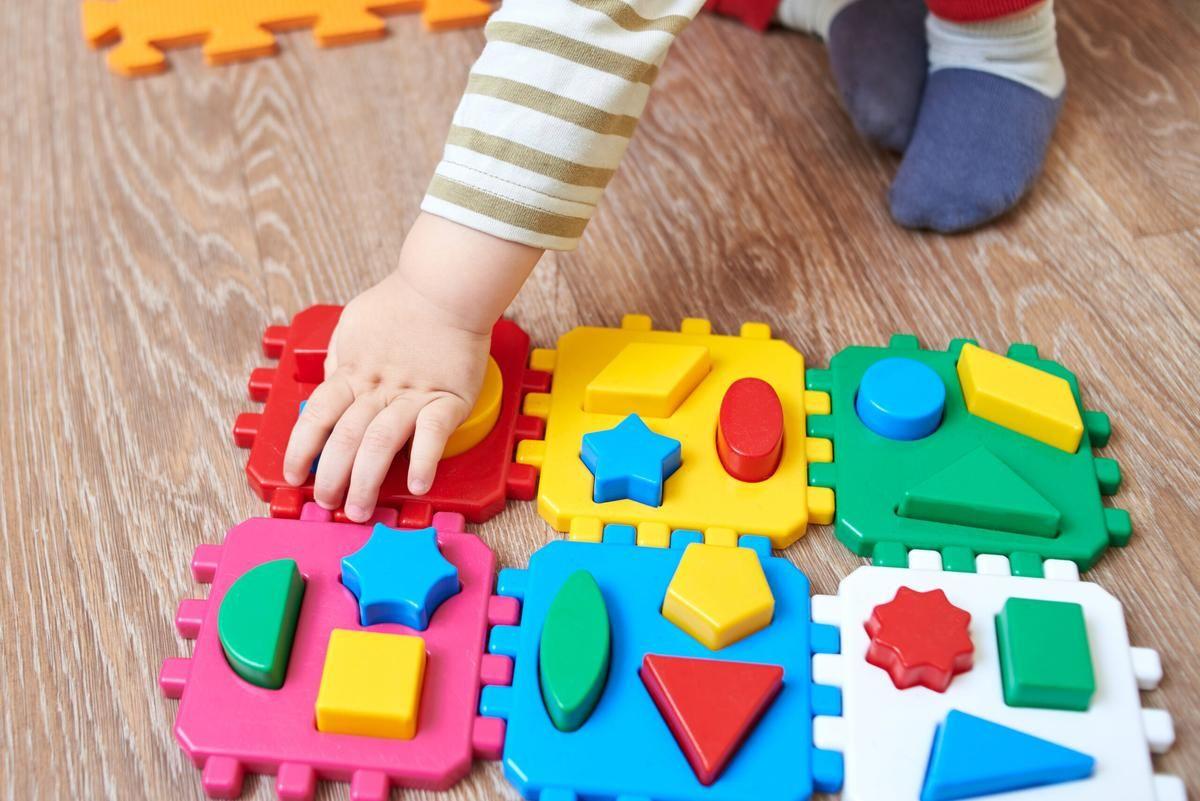
5. Show Baby numbers
From clocks to calendars, we’re surrounded by numbers! Just like you expose Baby to letters through reading, you can expose them to numbers in daily life. Think of it as number I spy!
6. Dance and sing songs
You may wonder—what does dancing and music have to do with math? Well, rhyming and repeating helps Baby recognize patterns, while moving to music builds spatial awareness (a sneaky but useful math skill)!
7. Find math in nature
Shapes, sizes, and patterns are everywhere outdoors! Look for stripes on leaves, compare rock sizes, or count trees on your next nature walk: “How many trees do you see? I count 1, 2, 3, 4!”.
Math is woven into so many everyday moments that you may not even realize you’re helping Baby build math skills just by playing, reading, or going on a walk. And because Baby’s brain is built to learn rapidly at this age, even the simplest activities can make a big difference. So go ahead—count those little piggies, sort those blocks, and sing that silly number song Baby likes!
